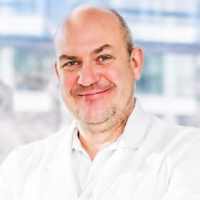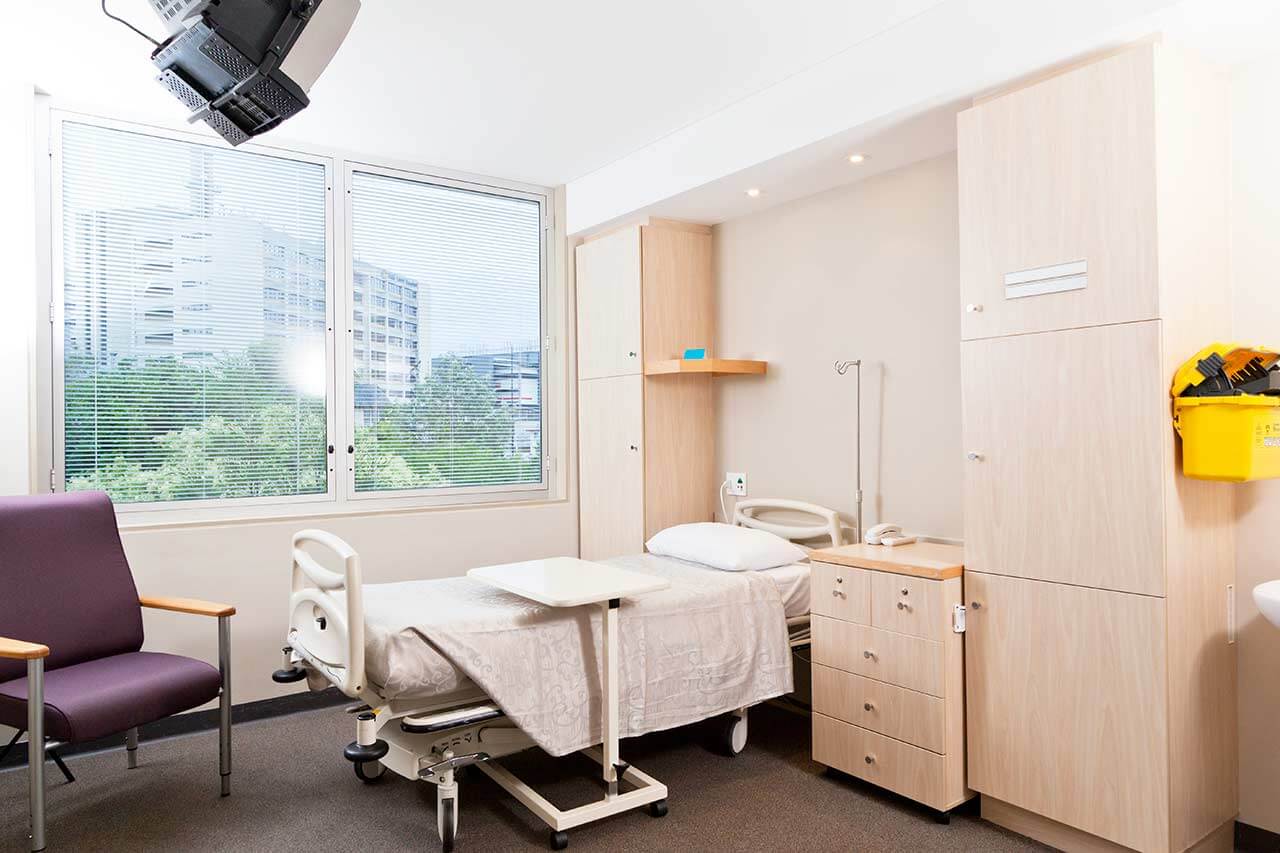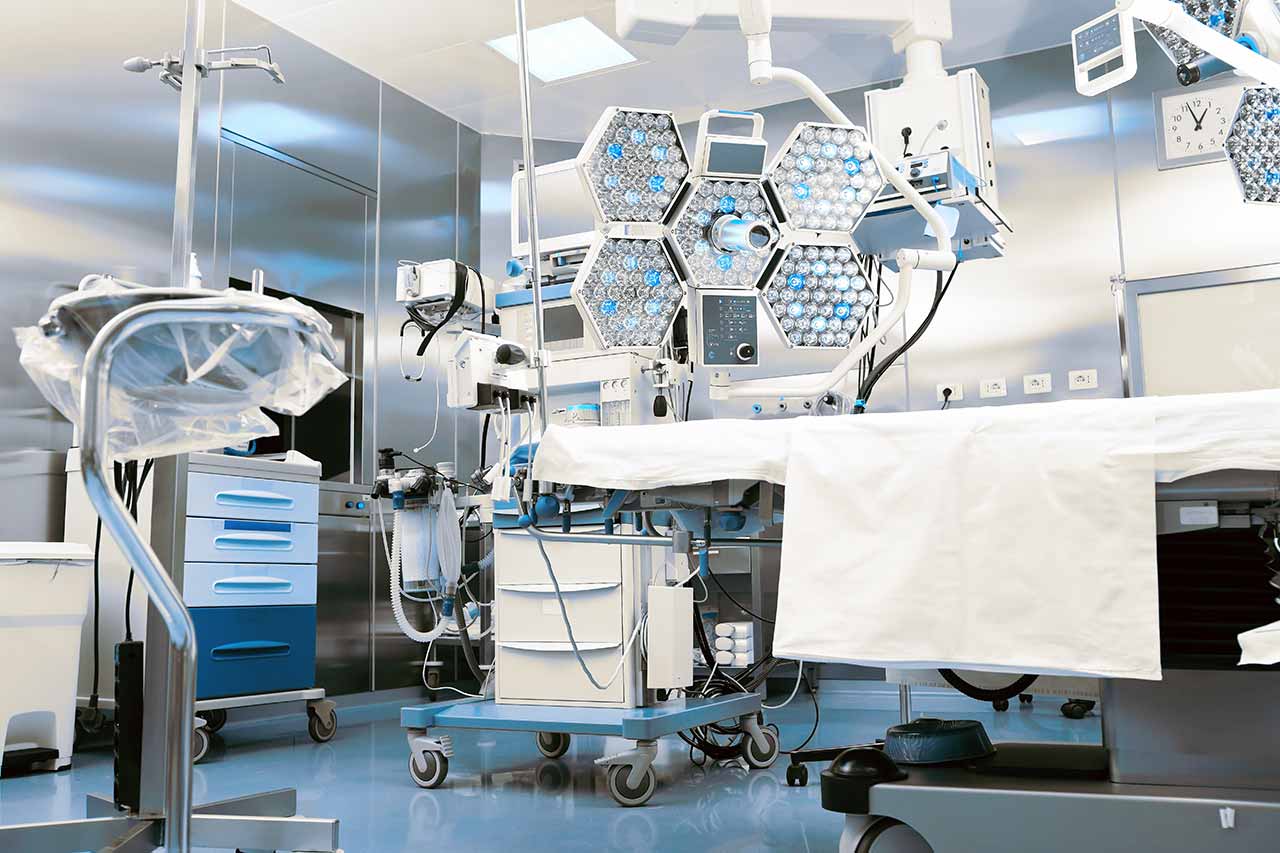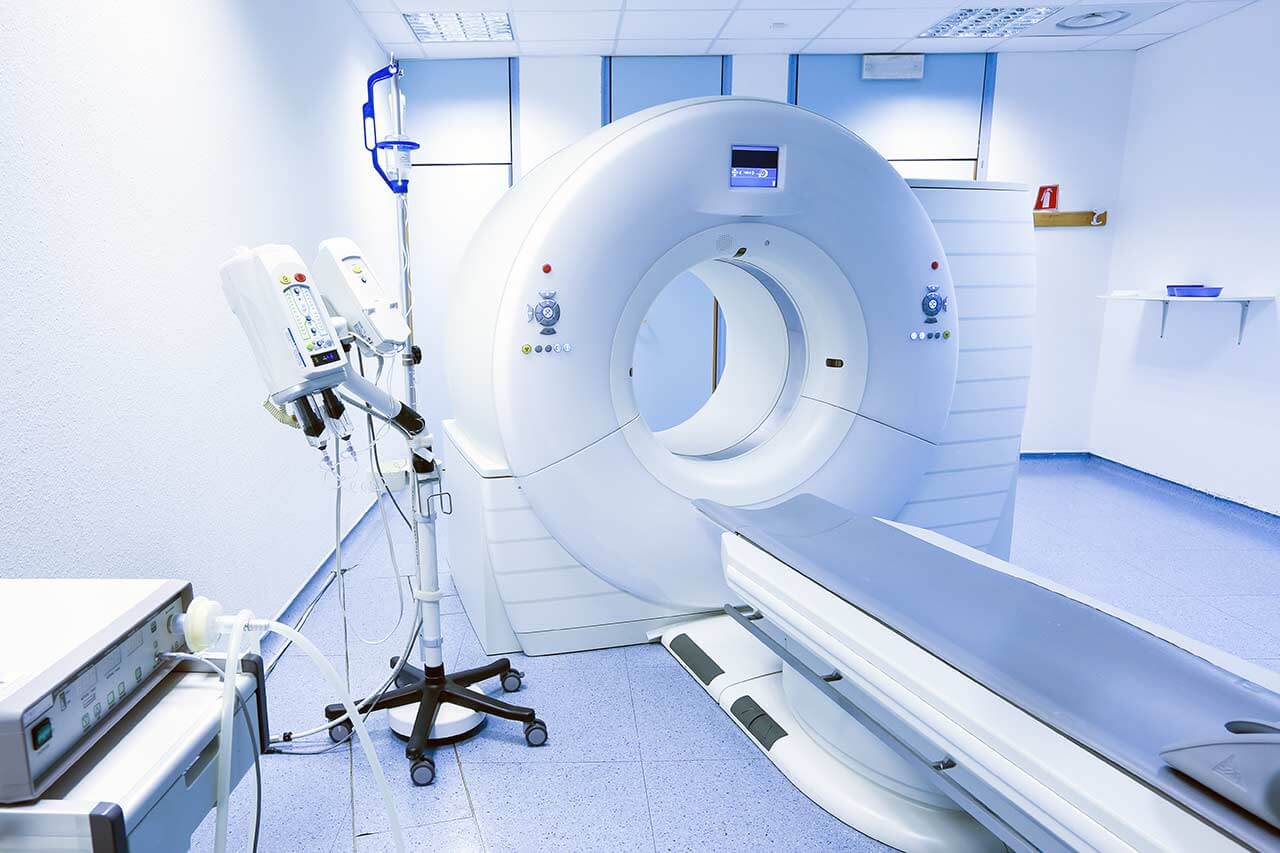
About the Department of Adult and Pediatric Urology, Andrology at Beta Clinic Bonn
The Department of Adult and Pediatric Urology, Andrology at the Beta Clinic Bonn offers the full range of services in these medical fields. The main areas of the department's clinical activity include the treatment of cancer of the male reproductive system and urinary system in women and men, benign prostatic hyperplasia, urinary incontinence, and kidney stone disease. The department also admits young patients with urologic diseases, including phimosis, undescended testicles, and enuresis. In the field of andrology, the specialists at the medical facility provide consultations on men's health. The main focus is on the treatment of erectile dysfunction. The department has advanced diagnostic equipment and operating rooms with state-of-the-art technology to provide high-quality medical care. Many minor surgical interventions are performed on an outpatient basis. In most cases, urologists manage to perform surgical treatment using minimally invasive and laparoscopic techniques, thanks to which patients recover quickly in the postoperative period. The medical facility guarantees each patient a professional approach to his urological problem, a humane attitude, and support throughout the therapeutic process.
The department is headed by Prof. Dr. med. Sebastian Wille. According to the Jameda website ranking based on patient reviews, Prof. Wille ranks among the top 5 urologists in Bonn. The specialist also enjoys high prestige in professional circles throughout Germany and Europe.
One of the key areas of the department's work is the treatment of prostate, testicular, penile, kidney, and bladder cancers. When a patient with suspected cancer comes to the department, he undergoes comprehensive diagnostics, including laboratory tests, imaging tests, and a biopsy. It is worth noting that the department offers an innovative technique called fusion biopsy for men with suspected prostate cancer. There is also an in-house Gene Laboratory, which carries out genetic cancer testing for tumor profiling and selection of targeted therapy. If, based on the results of preliminary diagnostics, doctors diagnose cancer, the patient's clinical case is considered at an interdisciplinary tumor board with the participation of urologists, radiologists, radiation therapists, and other specialists. In most cases, the first-line therapy is surgery to remove a malignant tumor. Whenever possible, minimally invasive organ preservation operations are performed. For patients in the advanced stages of the oncological process, it may be necessary to completely remove the affected organ, such as the kidney or bladder. The operation is often supplemented with chemotherapy that is carried out by specialized oncologists. Experienced radiation therapists may also be involved in the therapeutic process if necessary.
A special focus in the department's clinical practice is the treatment of benign prostatic hyperplasia. Advanced minimally invasive Rezum water vapor therapy is used here for this purpose. An approach to the prostate gland is provided through the urethra without any skin or soft tissue incisions. Water vapor is administered into the prostate tissue through a thin plastic tube with a built-in camera. At the tip of the plastic tube is a small needle, which is used to deliver a metered amount of steam heated to 70 ºC to the pathological tissues of the prostate gland. The duration of the procedure is about 5 minutes. The main advantage of the Rezum procedure is the reduction of the prostate gland's size without any side effects. In addition, the treatment is completely painless and does not affect erectile or ejaculatory function. In this case, the patient also gets rid of urination disorders. Doctors can assess the final result three months after the completion of the treatment course.
The department also offers effective treatment for kidney stone disease. The pathology is characterized by the formation of stones in the urinary system. Kidney stones may cause a variety of symptoms, including renal colic, nausea and vomiting, pain during urination, blood in the urine, increased fatigue, and fever. During the preliminary diagnostics, the patient undergoes advanced laboratory urine and blood tests, ultrasound scans, computed tomography, and cystoscopy. If the diagnosis is confirmed, the attending physician will select the best treatment option. The department's urologists have modern treatment methods for kidney stone disease that allow the patient to get rid of stones without any surgical procedures. Treatment methods available here include drug dissolution of kidney stones, extracorporeal shock wave lithotripsy, percutaneous nephrolitholapaxy, and ureteroscopy with laser lithotripsy. The most effective treatment method is prescribed based on the specific clinical case and the severity of the disease.
The scope of tasks assigned to the department's doctors includes consultations for patients with andrologic diseases. Of particular interest to the department's specialists is the treatment of erectile dysfunction. Erectile dysfunction is a disorder in which a man cannot achieve or maintain an erection long enough to have sexual intercourse. In 95% of cases, doctors manage to help the patient with well-chosen drug therapy. In rare cases when drug therapy does not give the desired result, the patient may require the use of vacuum devices or injection therapy. The last line-therapy is penile implant surgery.
The department's range of medical services includes:
- Conservative therapy
- Drug therapy
- Extracorporeal shock wave lithotripsy, percutaneous nephrolitholapaxy and ureteroscopy with laser lithotripsy for kidney stone disease
- Vacuum therapy and injection therapy for erectile dysfunction
- Surgical treatment
- Outpatient surgical procedures
- Circumcision in adults
- Urethral dilatation (bougienage)
- Botox injections for overactive bladder
- Sterilization (vasectomy)
- Inpatient surgical procedures
- Prostate resection
- Classical transurethral resection of the prostate (TURP)
- Transurethral resection of the prostate (TUR) with preservation of ejaculation
- Laser and plasma vaporization of the prostate
- Minimally invasive Rezum water vapor therapy for prostate adenoma
- Dilatation (bougienage) and reconstructive surgery for urethral diseases
- Extracorporeal shock wave lithotripsy, minimally invasive and open surgery for kidney stone disease
- Nephrectomy and organ preservation surgery for kidney cancer
- Transurethral resection of a bladder tumor and radical cystectomy for bladder cancer, followed by the formation of a new bladder, for example, from the ileum tissues
- Penile implant surgery for erectile dysfunction
- Surgical resection of testicular tumors
- Surgical resection of penile tumors
- Surgery for urinary incontinence
- Surgery for pelvic organ prolapse
- Foreskin circumcision in children
- Surgery for cryptorchidism (undescended testicle) in children
- Prostate resection
- Outpatient surgical procedures
- Other medical services
Curriculum vitae
Prof. Dr. med. Sebastian Wille studied medicine in Marburg and Munich. He defended his doctoral thesis with honors. This was followed by his board certification and habilitation on the following subject: "Urinary incontinence after a radical prostatectomy". In 2014, he received his professorship. During his medical training, he was invited to work as a visiting doctor in Manchester (UK), Preston (UK), Bern (Switzerland), Balboa (Spain), Marseille and Lyon (France), Vienna (Austria), and Florence (Italy). In addition, Dr. med. Wille has served for many years as Managing Senior Physician and Deputy Head of the Department of Urology at the University Hospital Cologne. In 2015, he was appointed Head of the Department of Adult and Pediatric Urology, Andrology at the Beta Clinic Bonn .
Prof. Wille provides the full range of diagnostic and therapeutic services in urology. Special attention is paid to the surgical treatment, the treatment of bladder dysfunction, including urinary incontinence and pelvic floor muscle weakness, as well as the treatment of kidney, bladder, prostate, and testicular cancers. Other priority areas include andrological diseases and reconstructive urology, including sex reassignment surgery.
Prof. Wille founded the Urinary Incontinence Center. He also contributed to the development of another Urinary Incontinence Center and the Prostate Center. He also invented the measurement capsule for long-term urodynamic testing without the use of a catheter (see YouTube: wille wica).
He is a member of many national and international specialized urological societies, including the German Society of Urology (DGU), the European Association of Urology (EAU), and the International Continence Society (ICS). He is also widely recognized as a leading specialist in the area of his specialization. In addition, Prof. Wille is the author and co-author of more than 120 scientific papers and publications. He has two drug patents and regularly lectures at national and international congresses and symposiums. He is also a member of Astellas Overactive Bladder.
Photo of the doctor: (c) Beta Klinik Service-, Verwaltungs- und Forschungs- GmbH





